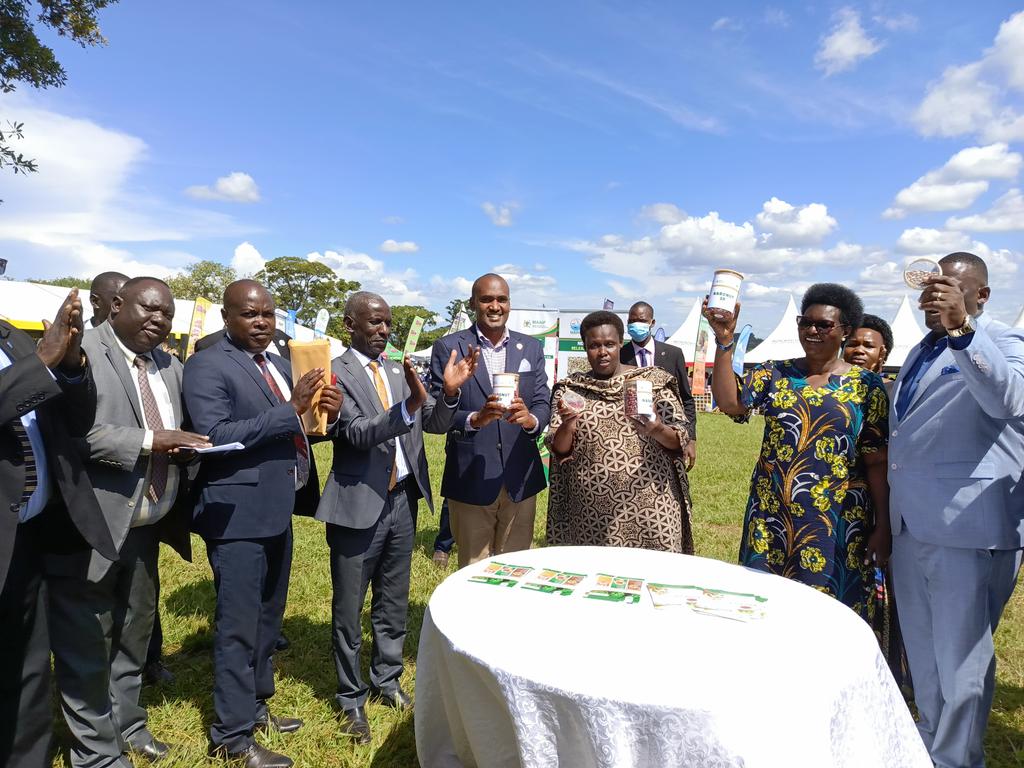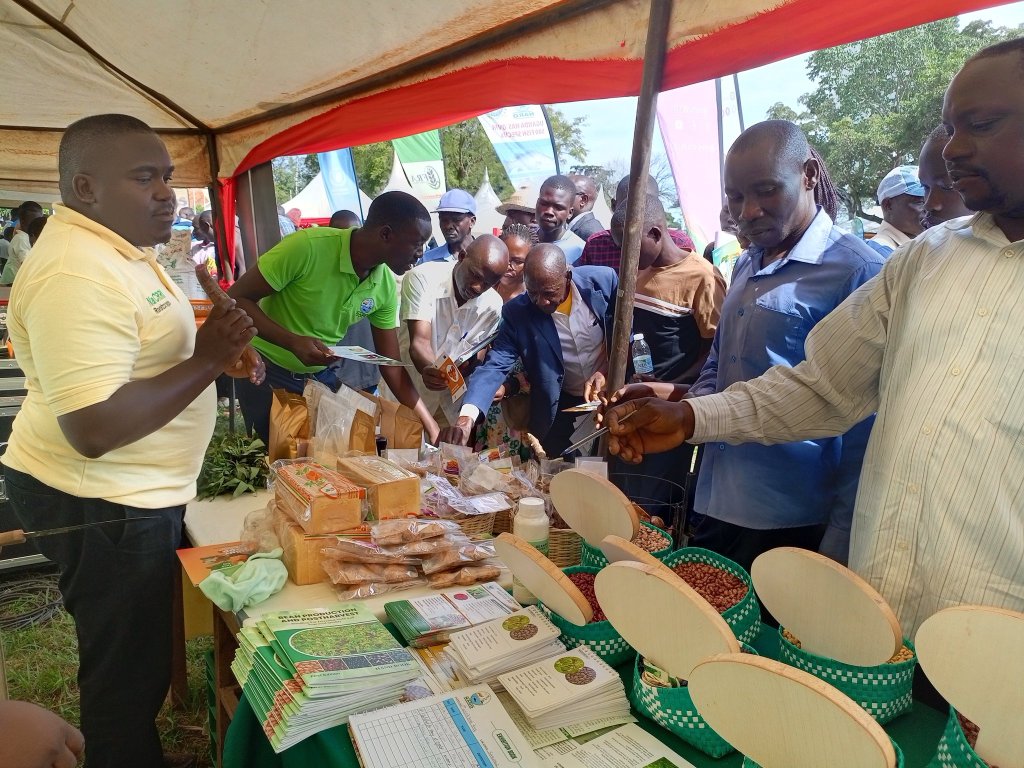NaSARRI Marks 102 Years with New Crop Varieties Unveiled at World Food Day 2024

By Genevieve Apio
The National Semi-Arid Resources Research Institute (NaSARRI) commemorated its 102nd anniversary by hosting Uganda’s 44th World Food Day in Serere District in Eastern Uganda. This year’s event, under the theme “Right to Food for a Better Life and Better Future,” focused on food security and sustainable agriculture, particularly in Uganda’s semi-arid regions, where farmers face increasing challenges from climate change.
A key highlight of the day was the official unveiling of five new crop varieties designed to bolster agricultural productivity in Uganda’s drylands. Uganda’s Vice President Maj. (Rtd) Jessica Alupo, who officiated at the function, launched two bean varieties—NABE 14R and NABE 12CR—developed by the National Crops Resources Research Institute (NaCRRI), alongside three groundnut varieties—NARO Nut 5R, 4R, and 3R, developed by NaSARRI.
These crop varieties are tailored to tackle the specific challenges of Uganda’s semi-arid regions, such as prolonged droughts, pest infestations, and crop diseases. With improved yield potential and greater resistance to environmental stressors, these new varieties will significantly enhance food security and improve the incomes of smallholder farmers.
The launch of the varieties comes at a critical time when Uganda’s agriculture sector is grappling with the adverse effects of climate change. Semi-arid regions, in particular, have seen more unpredictable rainfall patterns and rising temperatures, both of which have diminished crop yields and exacerbated food insecurity.
The NABE bean varieties offer faster maturity and disease resistance, making them a reliable option for farmers who depend on beans for both subsistence and commercial purposes. Meanwhile, the NARO Nut groundnut varieties provide higher yields and enhanced drought resilience, making them essential for sustaining agricultural viability in Uganda’s drylands.
Regional Collaboration: ASARECA’s Role
The introduction of these new crop varieties aligns with the broader goals of ASARECA, in fostering agricultural research and collaboration across the region. Through partnerships with national research institutions like NaSARRI and NaCRRI, ASARECA supports efforts to share knowledge, improve agricultural sustainability, and introduce innovations that address the unique challenges of farming in Eastern and Central Africa.
ASARECA’s collaboration ensures that these newly developed, climate-resilient crop varieties will not only benefit Ugandan farmers but also contribute to regional food security by making these innovations accessible to farmers throughout Eastern and Central Africa.
Alongside the launch of the new varieties, World Food Day 2024 featured exhibitions and discussions centered around climate-smart agriculture. Farmers, researchers, and policymakers shared insights into sustainable farming techniques such as water conservation, pest control, and soil management. These methods are vital for addressing the ongoing food security challenges exacerbated by climate change, especially in semi-arid regions.

This year’s World Food Day celebrations marked a significant milestone in Uganda’s journey toward agricultural sustainability. The introduction of climate-resilient crop varieties by NaSARRI and NaCRRI demonstrated the country’s commitment to ensuring food security in the face of climate change.
Partnerships with regional bodies like ASARECA will remain crucial in driving agricultural innovation not only within Uganda but across the broader Eastern and Central African region. These collaborative efforts are essential for ensuring that every citizen enjoys the “Right to Food for a Better Life and Better Future,” laying the foundation for a food-secure future in Uganda and in the ECA sub region.
